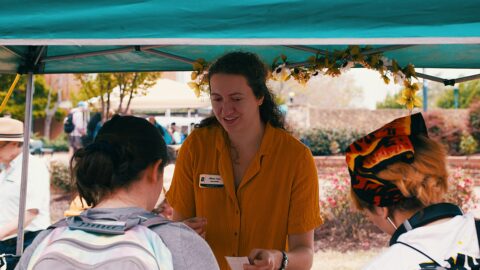by Ruth Leonard
Ruth Leonard, Chair of AVM, shares her thoughts on what the future of volunteer management might look like in the post-pandemic ‘new normal’
This current pandemic situation has shown what people who involve volunteers know to be true – that volunteering is and remains, universally strong. Volunteers, as members of a local community, can help address needs which statutory services or organisations on their own cannot reach.
The response and growth of local mutual aid groups, helping people to self-mobilise to donate time and attention to people within their area, shows this. People, without being asked to step in, came forward to give their time, to provide practical assistance, comfort and support; ultimately creating a sense of resilience and strength.
The vast numbers of people signing up to be involved in the NHS Responders opportunity within England further demonstrates the desire of people to be able to do something and help others. Whilst this is a more top-down approach, Royal Voluntary Service (RVS), who facilitate the scheme, have been able to offer the volunteer journey in a much more agile and flexible way than many of the traditional models in volunteer involving organisations ordinarily do. If we are going to efficiently build on the successes born out of this crisis, we need to think more widely and creatively about how we engage those who want to give time.
One of the aspects for me about what volunteers bring is their ability to specialise and focus but at the same time being able to innovate and experiment, but volunteers themselves don’t necessarily feel that they have the opportunity to do this, with over one in six reporting in NCVO’s Time Well Spent report that they have skills and experience which they’d like to use in volunteering, that they’re not currently using.
Whilst this is clearly not a large number it seems statistically worth considering from a volunteer management point of view so that we can ensure that volunteers are able to give in a meaningful way which also meets their personal needs. People powered services should be exactly that – powered by people not by systems or processes.
We are used to viewing people giving their time through the lens of ‘traditional volunteering’, generally limited to pre-determined functions and selected for specific tasks; but to do so could mean that we are moving away from people’s motivations and interests and merely valuing the transactional and that which is carried out through an organisation – which I think is a barrier to those people who come forward because they want to just do something.
There is a wide spectrum of reasons for giving time and people do so in many ways – including to a variety of sectors as well as to none. As we can see during the response to the Covid19 crisis, boundaries are being increasingly blurred between the sectors – state, charities and private – and those who want to do something to make a difference want to do just that; so it is our responsibility as leaders of volunteering to help facilitate that as much as possible.
How do we ensure the necessary and relevant structure without impeding the volunteer journey and experience? Volunteer management needs to be less about telling and more enabling and encouraging flexibility. Part of this should be looking at how volunteers can fully be involved and able to influence development.
Volunteer management enables people giving their time to be engaged, supported and motivated, which includes working together with volunteers to meet the needs of the community through their own assets, so we need to develop our skills at mobilising community engagement and empowerment to ensure continued flourishing of volunteering.
About Ruth

Ruth Leonard is Chair of AVM, and Head of Volunteering Development and Operations at Macmillan Cancer Support.





An interesting piece. I do wonder though whether the very structured approach that you mention is indeed “traditional volunteering”. Rather, it seems to me that the community-based responses that have arisen during the pandemic are in fact the “traditional volunteering”.
In my experience, the managed approach has expanded over relatively recent decades, and in response to very real concerns about issues ranging from safety and safeguarding to financial probity and effective planning. Those volunteers not on the front line, previously seeing themselves exclusively as supporting and enabling, have themselves become “volunteer managers”. But the net effect of a much more professional approach is a double entendre; for some, professional means trained, organised and structured, whereas for others professional means “exactly the same as work”, when they were hoping to find that a “change is as good as a rest”.
No one would cast aside the lessons of recent years, nor the concerns over the reputation of the sector as a whole, yet a lot has been achieved in recent months in a fairly organic way. There may be lessons there, as I think you are suggesting.